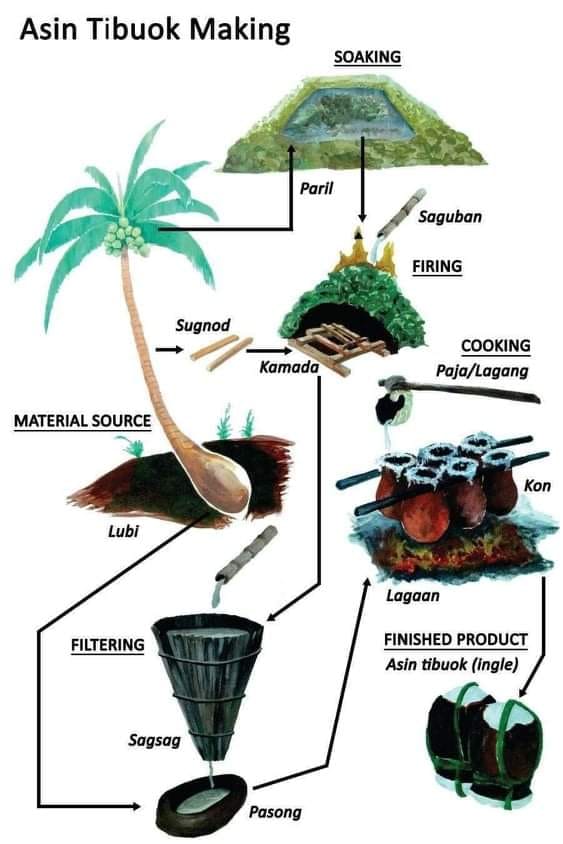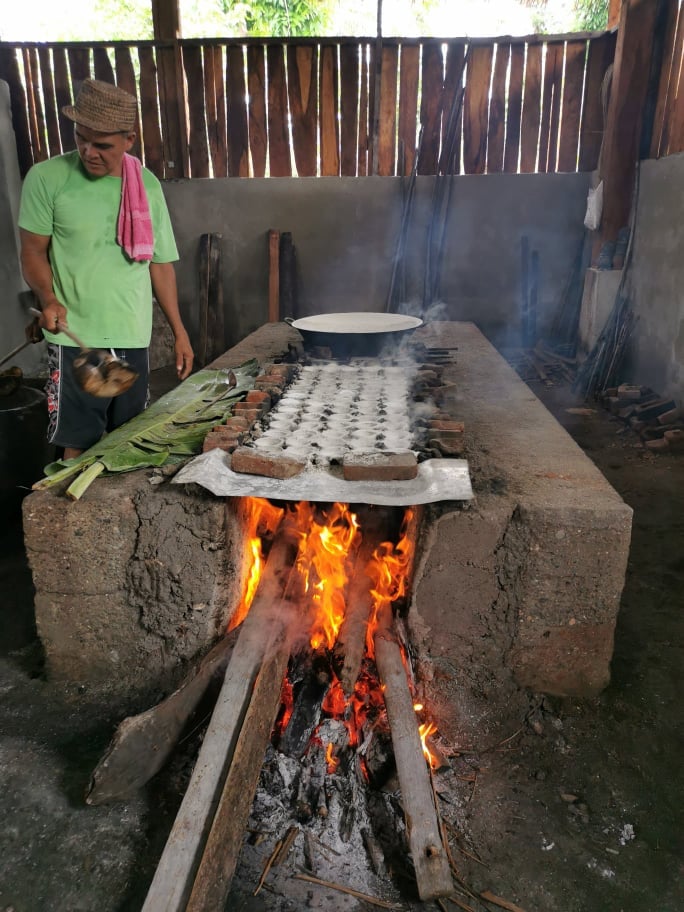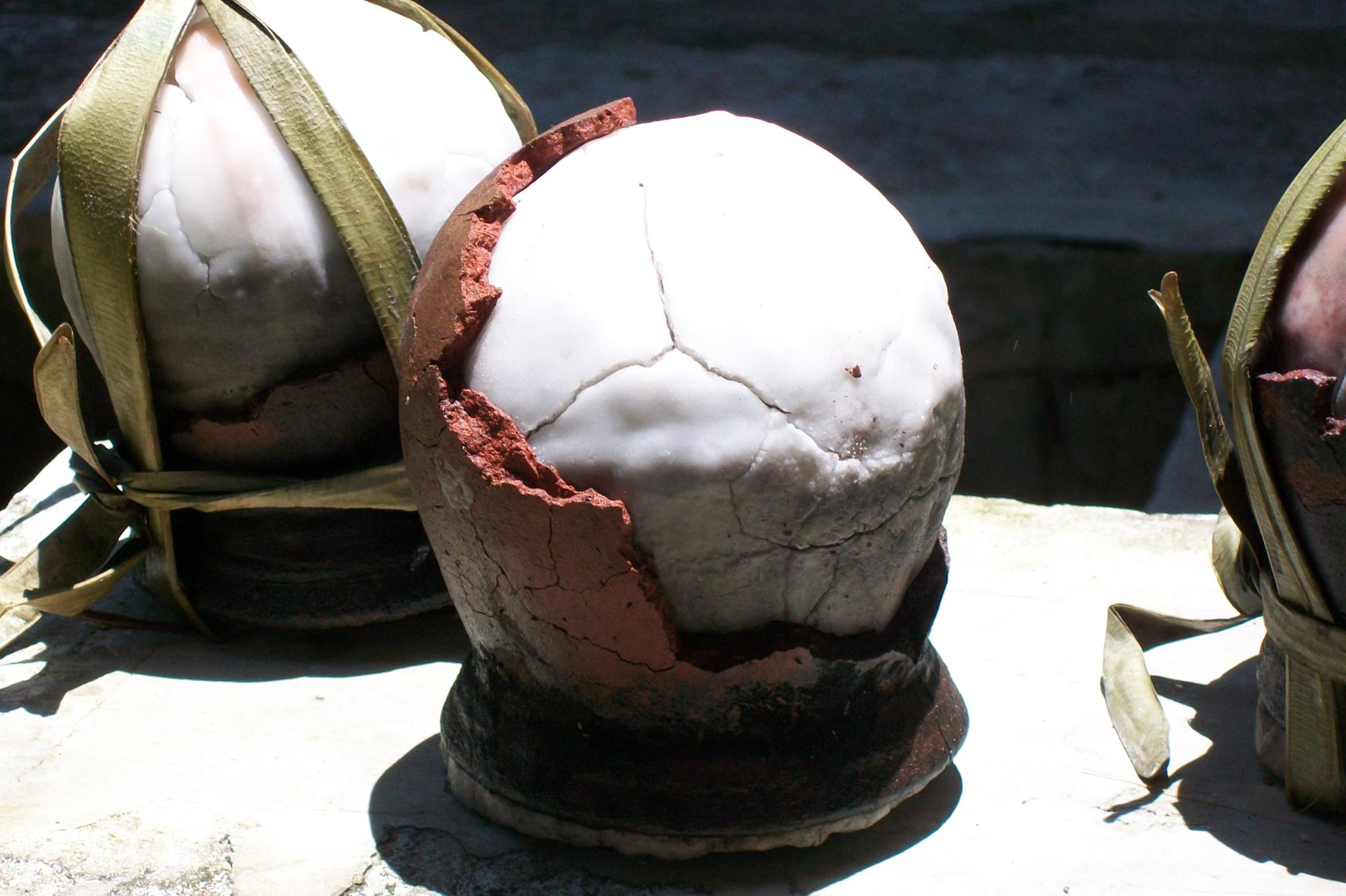It looks like a dinosaur’s egg, but it’s actually “asin tibuok,” a Filipino-made salt which is one of the rarest salts in the world.
If you’ve ever watched Replacing Chef Chico on Netflix, an episode tackled a prime jewel in the Philippine culinary scene: asin tibuok or asin tibook. If you’re curious, let me paint you a picture: it looks like a dinosaur’s egg and is actually one of the rarest salts in the world. The rare flavorful condiment is usually crafted in Bohol according to Business Insider.
The salt requires a method that is truly ours and is unique yet tedious to make. However, the trade almost died down in the late 20th century once younger generations left for other bankable opportunities.
READ ALSO: A Vinter’s Tale: Highlighting Chile’s Exceptional Wines
Creating asin tibuok is stringent and thorough
A family-owned company named Tan Inong Manufacturing dedicates itself to preserving the rare salt making method. They are located in Albuquerque, Bohol and are committed to becoming rooted in its heritage.
Creating the asin tibuok requires a “labor-intensive, pre-Hispanic method of production” which coincides with harvesting rice. The company website said once the salt pots are created, the makers trade them off for kilos of rice grains.
Tan Inong narrated their process, which begins with coconut husks soaked for three months in a mangrove’s saltwater pool. These will be harvested and sliced. The makers will burn them in a regulated manner through pouring seawater constantly in the burning pile for three days. This will leave highly concentrated salty ashes which would then be placed in large filters. The makers are to pour seawater through the ashes to make a very concentrated solution.

The makers position the handcrafted kolun or claypots over wood fire where the makers pour brine continuously for eight hours. This leaves salt sediments as the solution evaporates. It is mandatory that the salt-maker pays attention to this part of the process as the pots would crack if the pot is not filled. A smoky orb emerges as the process comes to an end.

GMA Lifestyle mentioned that tibuok is a Visayan term for “whole or unbroken.”
Continuing the tradition
The National Museum of the Philippines – Bohol said the remaining makers enliven their trade through selling it as artisanal salt. “It will indeed take a concerted effort and commitment by the local community to preserve this unique Bol-anon heritage,” the museum said in a post.
GMA interviewed the production-in-charge Nestor Manungas, who has been overseeing the process since 2010. He and his sister try to keep the tradition alive although it’s hard due to the company’s lack of workforce. However, to Manungas’ surprise, two of his children wanted to learn the tedious salt making process, motivating him to continue living the dream.
Manungas’ neighbor expressed interest in helping around the facility and learning about the trade as per GMA. People supported him continuously, which meant the business wasn’t dead after all.

Asin tibuok is not your ordinary table salt
The Bohol-crafted salt provides smoky and earthy taste profiles in food, so it’s not your ordinary table salt. GMA reported further that it adds a depth of flavor especially to stews, sauces, and soups. Asin tibuok makes a savory seasoning for grilled meats, vegetables, and seafood. It proves its versatility as well as a pinch of the salt can elevate desserts.
The rare condiment gains global traction continuously too as more foreign kitchens and modern cuisine discover its flavors. ABS-CBN News relayed that the salt is even exported to clients from the United States and Europe. The salt appeared to be for sale in Walmart’s website (now unavailable) which sold for $166.98.
GMA mentioned the Department of Tourism Region 7 and the Provincial Tourism Office of Bohol partnered up to promote Bohol’s traditional culinary practices.
Asin tibuok is proudly Filipino-made. Let us continue supporting our country’s byproducts and spotlighting the richness of our culture, heritage, and legacies.
Banner photo from The Fermentary’s website.





